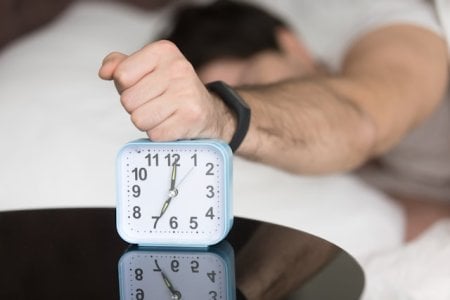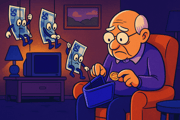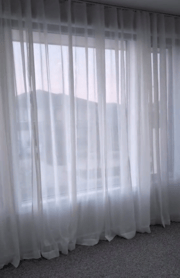Are You Sabotaging Your Day? Here’s What Happens When You Hit the Snooze Button, According to Scientists
By
Seia Ibanez
- Replies 0
We’ve all been there: the alarm blares, you groan, and your hand instinctively reaches for that oh-so-tempting snooze button. 'Just five more minutes,' you tell yourself, hoping for a little extra rest before facing the day. But what if those extra minutes are actually doing you more harm than good?
According to a recent study from Brigham and Women’s Hospital in Massachusetts, hitting the snooze button is a habit shared by more than half of us. In fact, the research found that, on average, people spend about 11 minutes each morning in that hazy, in-between state—caught between alarms and not quite awake. But before you congratulate yourself on squeezing in a few more precious moments of sleep, scientists warn that this common practice could be sabotaging your energy, mood, and even your memory for the rest of the day.
Why Do We Love the Snooze Button So Much?
Let’s face it: mornings can be tough, especially as we get older and our sleep patterns change. Whether it’s aches and pains, a restless night, or simply the comfort of a warm bed, the temptation to delay the inevitable is strong. The study, which analysed sleep data from over 21,000 people across four continents using the Sleep Cycle app, found that 55.6% of sleep sessions ended with a snooze alarm. And for some, it’s not just a one-off—45% of participants hit snooze on more than 80% of mornings, averaging a whopping 20 minutes of snooze time each day.

Interestingly, the research also revealed that snooze habits vary by country. Australians, along with the Japanese, are among the least likely to hit snooze, while folks in the US, Sweden, and Germany are the biggest culprits. Women were also found to be more likely to use the snooze button than men, possibly due to higher rates of insomnia and the added pressures of juggling work, family, and other responsibilities.
The Science of Sleep: Why Snoozing Doesn’t Help
So, what’s the big deal about a few extra minutes in bed? According to Dr Rebecca Robbins, the lead author of the study, the problem lies in the type of sleep you’re getting. The final hours before you wake up are typically rich in rapid eye movement (REM) sleep—a crucial stage that helps with memory, emotional processing, and cognitive function. When you hit snooze and drift back off, you’re not slipping back into this restorative REM sleep. Instead, you’re entering a lighter, more fragmented sleep that doesn’t offer the same benefits.
In other words, those extra minutes aren’t helping you feel more rested—in fact, they might be making you groggier. This phenomenon, known as 'sleep inertia,' can leave you feeling sluggish and disoriented, making it harder to start your day on the right foot.
Should You Change Your Morning Routine?
If you’re a serial snoozer, don’t worry—you’re not alone, and it’s never too late to make a change. Sleep experts recommend setting your alarm for the latest possible time you actually need to get up, then committing to getting out of bed as soon as it rings. This way, you maximise your REM sleep and avoid the pitfalls of fragmented, low-quality snooze sleep.
It’s also worth looking at your bedtime routine. The study found that people who went to bed earlier were less likely to rely on the snooze button, while night owls were more prone to hitting it. So, if you’re struggling in the mornings, try winding down a little earlier in the evening—your future self will thank you!
Tips for Waking Up Refreshed (Without the Snooze Button)
- Establish a consistent sleep schedule: Go to bed and wake up at the same time every day, even on weekends.
- Create a relaxing bedtime routine: Avoid screens and bright lights before bed, and try reading, gentle stretching, or listening to calming music.
- Let in the light: Open your curtains as soon as you wake up, or consider a sunrise alarm clock to help your body adjust naturally.
- Move your alarm clock: Place it across the room so you have to physically get out of bed to turn it off.
- Reward yourself: Plan a small treat for the morning, like a cup of your favourite tea or a few minutes in the garden.
The Bottom Line
While the snooze button might seem like a harmless indulgence, science suggests it’s better to resist the urge. By setting your alarm for when you actually need to get up—and sticking to it—you’ll give your body the best chance to enjoy restorative sleep and start your day feeling refreshed.

We’d love to hear from you, members! Are you a proud early riser, or do you find yourself hitting snooze more often than you’d like? Have you found any tricks that help you get up in the morning? Share your thoughts, tips, and stories in the comments below—let’s help each other start the day right!
According to a recent study from Brigham and Women’s Hospital in Massachusetts, hitting the snooze button is a habit shared by more than half of us. In fact, the research found that, on average, people spend about 11 minutes each morning in that hazy, in-between state—caught between alarms and not quite awake. But before you congratulate yourself on squeezing in a few more precious moments of sleep, scientists warn that this common practice could be sabotaging your energy, mood, and even your memory for the rest of the day.
Why Do We Love the Snooze Button So Much?
Let’s face it: mornings can be tough, especially as we get older and our sleep patterns change. Whether it’s aches and pains, a restless night, or simply the comfort of a warm bed, the temptation to delay the inevitable is strong. The study, which analysed sleep data from over 21,000 people across four continents using the Sleep Cycle app, found that 55.6% of sleep sessions ended with a snooze alarm. And for some, it’s not just a one-off—45% of participants hit snooze on more than 80% of mornings, averaging a whopping 20 minutes of snooze time each day.

Are you always hitting the 'snooze' button? Scientists explained why you shouldn't. Credit: Solving Healthcare / Unsplash
Interestingly, the research also revealed that snooze habits vary by country. Australians, along with the Japanese, are among the least likely to hit snooze, while folks in the US, Sweden, and Germany are the biggest culprits. Women were also found to be more likely to use the snooze button than men, possibly due to higher rates of insomnia and the added pressures of juggling work, family, and other responsibilities.
The Science of Sleep: Why Snoozing Doesn’t Help
So, what’s the big deal about a few extra minutes in bed? According to Dr Rebecca Robbins, the lead author of the study, the problem lies in the type of sleep you’re getting. The final hours before you wake up are typically rich in rapid eye movement (REM) sleep—a crucial stage that helps with memory, emotional processing, and cognitive function. When you hit snooze and drift back off, you’re not slipping back into this restorative REM sleep. Instead, you’re entering a lighter, more fragmented sleep that doesn’t offer the same benefits.
In other words, those extra minutes aren’t helping you feel more rested—in fact, they might be making you groggier. This phenomenon, known as 'sleep inertia,' can leave you feeling sluggish and disoriented, making it harder to start your day on the right foot.
Should You Change Your Morning Routine?
If you’re a serial snoozer, don’t worry—you’re not alone, and it’s never too late to make a change. Sleep experts recommend setting your alarm for the latest possible time you actually need to get up, then committing to getting out of bed as soon as it rings. This way, you maximise your REM sleep and avoid the pitfalls of fragmented, low-quality snooze sleep.
It’s also worth looking at your bedtime routine. The study found that people who went to bed earlier were less likely to rely on the snooze button, while night owls were more prone to hitting it. So, if you’re struggling in the mornings, try winding down a little earlier in the evening—your future self will thank you!
Tips for Waking Up Refreshed (Without the Snooze Button)
- Establish a consistent sleep schedule: Go to bed and wake up at the same time every day, even on weekends.
- Create a relaxing bedtime routine: Avoid screens and bright lights before bed, and try reading, gentle stretching, or listening to calming music.
- Let in the light: Open your curtains as soon as you wake up, or consider a sunrise alarm clock to help your body adjust naturally.
- Move your alarm clock: Place it across the room so you have to physically get out of bed to turn it off.
- Reward yourself: Plan a small treat for the morning, like a cup of your favourite tea or a few minutes in the garden.
The Bottom Line
While the snooze button might seem like a harmless indulgence, science suggests it’s better to resist the urge. By setting your alarm for when you actually need to get up—and sticking to it—you’ll give your body the best chance to enjoy restorative sleep and start your day feeling refreshed.
Key Takeaways
- Scientists have found that hitting the snooze button disrupts your restorative REM sleep, making it harder to feel refreshed during the day.
- The study revealed that over half of people globally use the snooze button, with heavy users spending up to 20 minutes snoozing each morning.
- The best approach, according to experts, is to set your alarm for the latest possible time and get up as soon as it goes off, rather than relying on the snooze function.
- Australians and Japanese use the snooze button less than people in the US, Sweden and Germany, while women are more likely than men to use the snooze due to increased sleep difficulties and additional responsibilities.
We’d love to hear from you, members! Are you a proud early riser, or do you find yourself hitting snooze more often than you’d like? Have you found any tricks that help you get up in the morning? Share your thoughts, tips, and stories in the comments below—let’s help each other start the day right!







